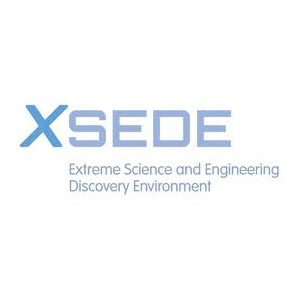 XSEDE has awarded 145 deserving research teams at 109 universities and other institutions access to nearly two dozen NSF-funded computational and storage resources, as well as other services unique to XSEDE, such as the Extended Collaborative Support Services (ECSS). Total allocations this cycle, running July 1, 2018, through June 30, 2019, represent an estimated $7.3 million of time on multi-core, many-core, GPU-accelerated, and large-memory computing resources (which does not include additional consulting resources) – all at no cost to the researchers.
XSEDE has awarded 145 deserving research teams at 109 universities and other institutions access to nearly two dozen NSF-funded computational and storage resources, as well as other services unique to XSEDE, such as the Extended Collaborative Support Services (ECSS). Total allocations this cycle, running July 1, 2018, through June 30, 2019, represent an estimated $7.3 million of time on multi-core, many-core, GPU-accelerated, and large-memory computing resources (which does not include additional consulting resources) – all at no cost to the researchers.
Since its founding in 2011, XSEDE and XSEDE 2.0 have allocated an estimated $270M of computing time.
This round of XSEDE allocations will enable scientific discoveries from 48 different fields of science, ranging from biochemistry to materials research to astronomical sciences. Here is the full list of those with current allocations and their research abstracts.
XSEDE offers several different types of allocations, so that everyone from the first-time HPC user to the career HPC expert can gain access to the appropriate level of services that they need. Though the majority of XSEDE’s resources are allocated via Research Allocations, XSEDE also offers Startup Allocations, which are one of the fastest ways to gain access to and start using XSEDE-allocated resources. These allocations are designed to allow researchers to further develop their applications, conduct benchmarking on various resources, and other small-scale computational activities that require the unique capabilities of resources allocated through XSEDE. XSEDE also offers Education Allocations for academic courses or training activities which allow instructors to request up to three separate computational resources.
Research requests for XSEDE allocations are accepted and reviewed on a quarterly basis by the XSEDE Resource Allocations Committee (XRAC), a volunteer panel of approximately 40 computational science experts from academia and industry who represent many fields of science and engineering.
More information on the XSEDE allocations process may be found here. For those interested in serving on the XRAC, more information about that process may be found here.
For U.S.-based researchers who currently use, or want to use, advanced research computing resources and services, XSEDE can help. Whether you intend to use XSEDE-allocated resources or resources elsewhere, the XSEDE program works to make such resources easier to use and help more people use them. Once you are ready to take the next step, you can become an XSEDE user in a matter of minutes and be on your way to taking your computational activities to the next level.



